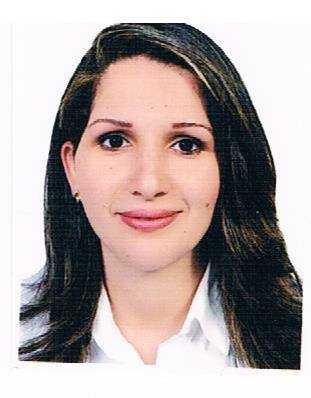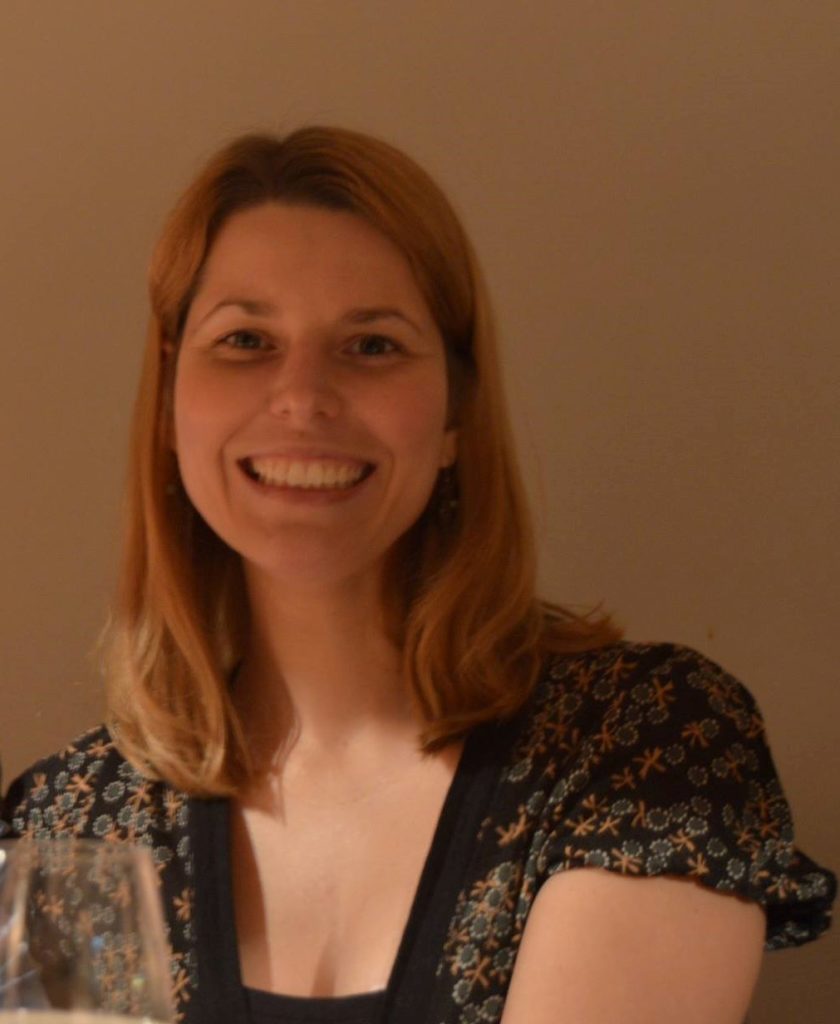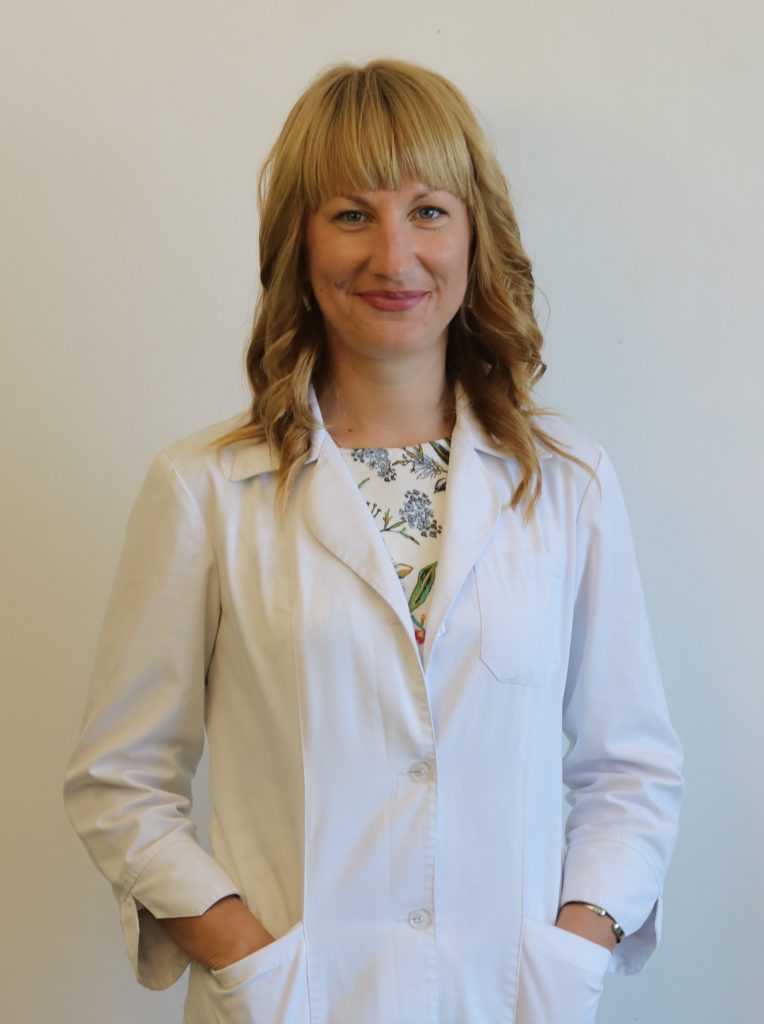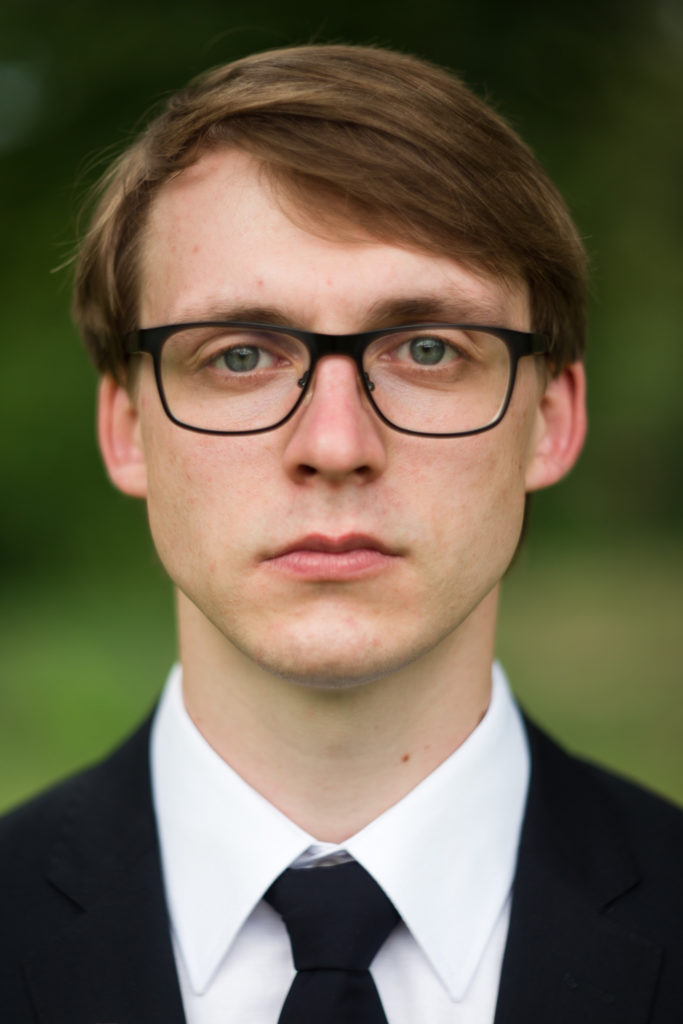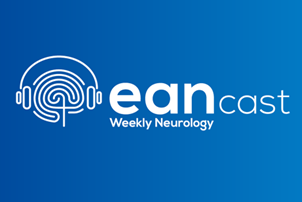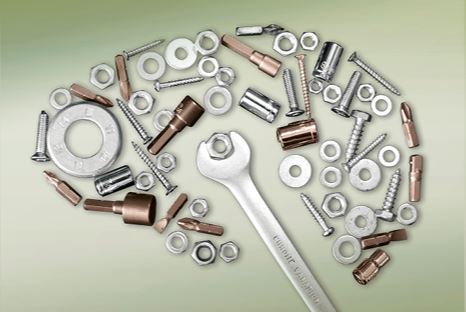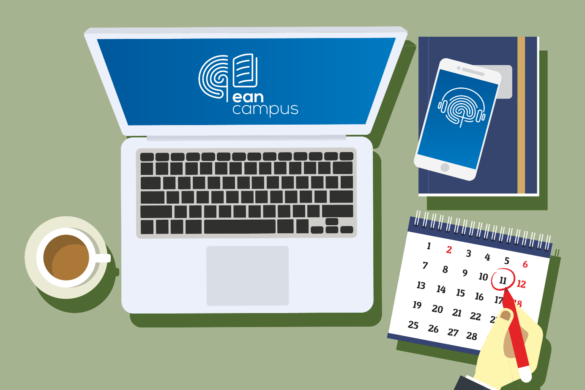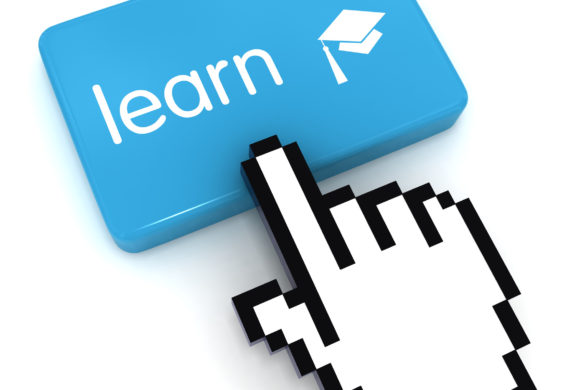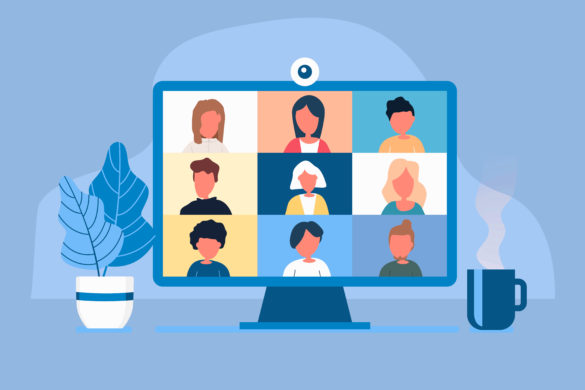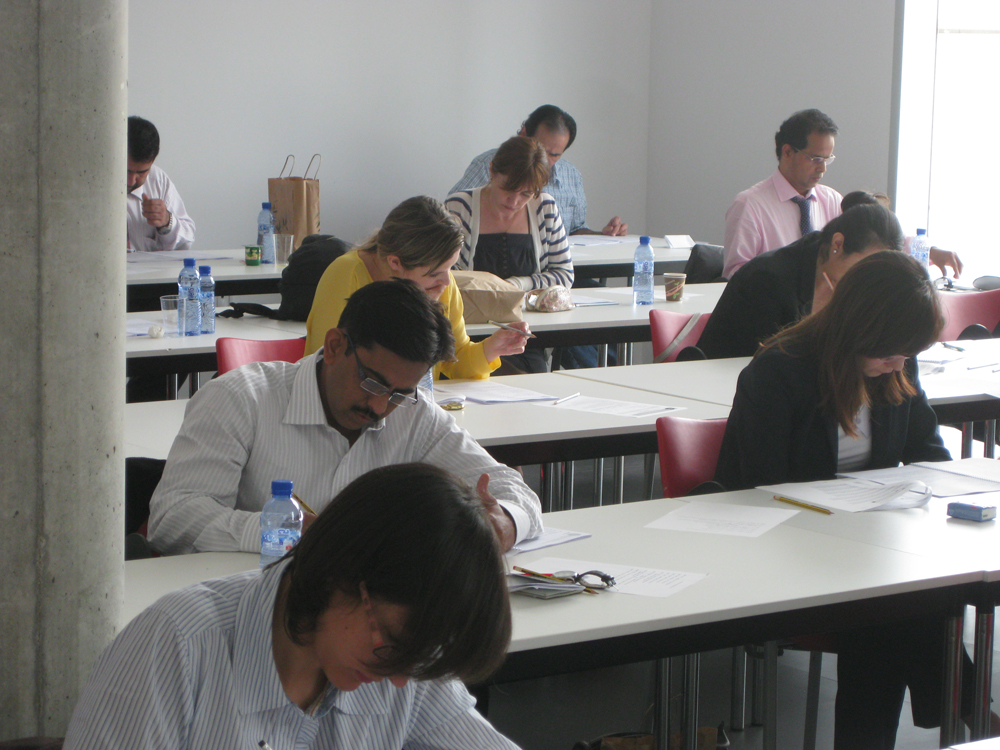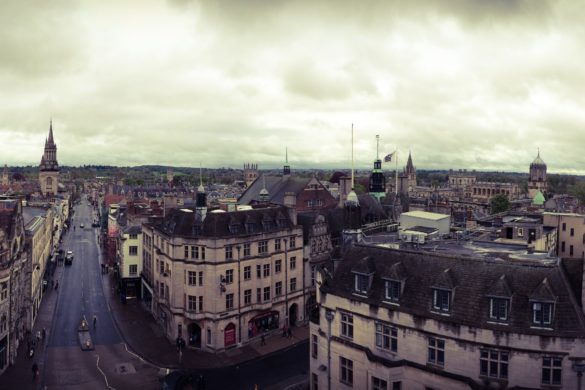Manel Ben Hmidene Ep Tezeghdenti, Ben Arous, Tunisia
Term of the stay: 6 weeks
Hosting department: 2nd Department of Neurology – Mazarin, Groupe Hospitalier de la Pitié Salpêtrière, 47 Boulevard de l’Hopital, 75013, Paris, France
Supervisor: Pr. Jean-Marc Leger, MD, jean-marc.leger@aphp.fr
I achieved 6 weeks of internship from May, 25th to July, 7th at the neuromuscular pathology unit of the Pitié-Salpêtrière Hospital as part of the EAN Clinical Fellowship program.
Within this framework, I would like to thank the European Academy of Neurology for giving me this opportunity to deepen my knowledge in this field. Many thanks are also due to Professor KHE HUANG XUAN, Head of the department of Neurology at Pitié-Salpêtrière hospital and Professor BRUNO EYMARD, head of the neuromuscular pathology unit, for their help. Then, I am very grateful to my supervisor Dr. Jean Marc Leger who has been guiding and supervising me during this internship and to all the staff of the department and the electrophysiology team.
My visit to the neuromuscular pathology unit was very successful. This unit, which is one of the reference centers of the region, is part of the Institute of Myology, located at the Babinski building of the Pitié-Salpêtrière hospital. Here, activities are divided as follows:
– Day hospitalization (for patients with neuromuscular diseases coming either for a check-up or to receive hospital treatments such as intravenous immunoglobulin or immunosuppressive treatments).
– Multidisciplinary consultations for the latter patients (in neurology, cardiology, pulmonology and functional rehabilitation)
– Specialized consultations, namely consultations on muscular pathology, consultations on Dysimmune Neuropathies and consultations on Hereditary Neuropathies.
– Cardiac and pulmonary exploration units for patients with neuromuscular disorders.
– A clinical electrophysiology unit
– A neuromuscular biopsy unit.
– Weekly staff meeting to discuss the cases seen during the week.
As far as I’m concerned everything was settled from the first week:
| Monday | Tuesday | Wednesday | Thursday | Friday | |
| In the morning | I attended the consultation of dysimmune neuropathies with Dr LEGER | I attended the consultation of hereditary neuropathies
With Dr LOUIS |
I attended muscle biopsies with Dr BEHIN and Dr BASSEZ and nerve biopsies with Dr MAISONOBE | I attended the consultation of peripheral neuropathies with Dr CHASSANDE and the EMG practice at the electrophysiology unit | I attended the EMG practice with Dr. MARINAUD at the electrophysiology unit |
| In the afternoon | I visited the day hospital | I visited the day hospital | I attended a consultation of muscular pathologies | I attended a Staff meeting of neuromuscular biopsy | I attended a Staff meeting of ENMG |
Saturday was devoted to the theoretical training in neuromuscular pathologies. Indeed, I had the opportunity to attend the “SUMMER SCHOOL of Myology”, a day of training on Channelopathies, a day of training on hereditary neuropathies and the “21st French Days of ElectroNeuroMyography”. I have learned about new features in genetic studies, and therapeutic trials in the treatment of some neuromuscular diseases (such as Spinal Muscular Atrophy, Dysimmune and inherited neuropathies). During the whole period of my internship, I got actively involved in the different activities of the service. I worked in a good atmosphere with other residents, I took part in outpatient clinics, and had meetings with nurses and therapists. I also assisted in the practice of electroneuromyograms and attended functional rehabilitation consultation dedicated to patients with neuromuscular pathology.
Indeed, it was an excellent learning opportunity for me I have valued every moment of my fellowship; I really did not have any negative impressions during my stay.
Viktoria Papp, Aabyhøj, Denmark
Term of the stay: 05.03.2018 – 31.05.2018
Hosting department: Nuffield Department of Clinical Neurosciences, John Radcliffe Hospital Oxford, UK – Headley Way, Headington, Oxford OX3 9DU
Supervisor: Maria Isabel Leite, MD, DPhil
It is my honour to write this report regarding my clinical fellowship at Nuffield Department of Clinical Neurosciences, John Radcliffe Hospital Oxford. I would like to thank the European Academy of Neurology and particularly Dr. Maria Isabel Leite from John Radcliffe Hospital Oxford for their support and contribution to my education in neurology. Dr. Leite kindly offered possibility to prolong the EAN fellowship for 3 months.
The principal purpose of my visit was to learn about immune-mediated diseases of CNS at the department that is world leader in research for these conditions, and where many of the currently known antibodies were identified. As a PhD student working in the field of NMO/anti-MOG antibody associated diseases, I could not have a greater opportunity (than?) visit the Neurosceince Department of John Radcliff Hospital.
Furthermore, I wished to get experience on how the patient care is organised in other countries and I hoped to bring some of the gained experience back to my current workplace.
My main supervisor was Dr. Leite, specialist in NMO, anti-MOG associated diseases, autoimmune encephalitis and myasthenia gravis. She welcomed me from day 1 and ensured that I could actively participate in the clinical and research work of the team. The weekly program was organized in a flexible way. So, I was able to participate in the outpatient clinic, ward work and meeting related to my focus, while at the same time I could also join other activities of the neuroscience department. Every Tuesday I attended the neuroradiology meeting, focusing on NMO and anti-MOG patients. The day continued with the NMO/MOG outpatient clinic and the weekly NMO team meeting, where the more complicated cases were discussed. Wednesdays were addressed to the autoimmune encephalitis and myasthenia gravis clinic. There was a weekly journal club bringing up interesting topic that led to fruitful and vivid discussion. The highlight of Fridays was the “patients grand round”, with unique patient presentations.
Dr. Woodhall introduced me the laboratory facilities, where the anti-MOG and anti-AQP4 antibody tests are performed. In addition, I could exercise in the reading and interpretation the CBA results.
All above I also had the possibility to visit other out-patient clinics, such as movement disorder, neurogenetic, peripheral neuropathy and MS clinics, where I met patients with rare conditions and cases with difficult diagnostic or treatment challenges. The many different highly specialised clinics helped me to become better at conducting focused neurological examination.
I was also involved in a clinical research project within NMO, where we could set up an international collaboration. Hopefully, our results will be submitted soon.
Beside of the scientific world, I have experienced another form of patient-doctor relationship, another hospital culture and way of approaching patient and involving them to research studies. I must add that I was very happy for being able to complete the fellowship in a country where I could understand the local language and I was able to communicate with patients without translation. This let me get an idea of the unfiltered daily life of a British hospital.
Finally, I have also started to understand English humour, thanks for the family I was staying with.
I wish this experience could be repeated in future.
01.07.2018 Viktoria Papp
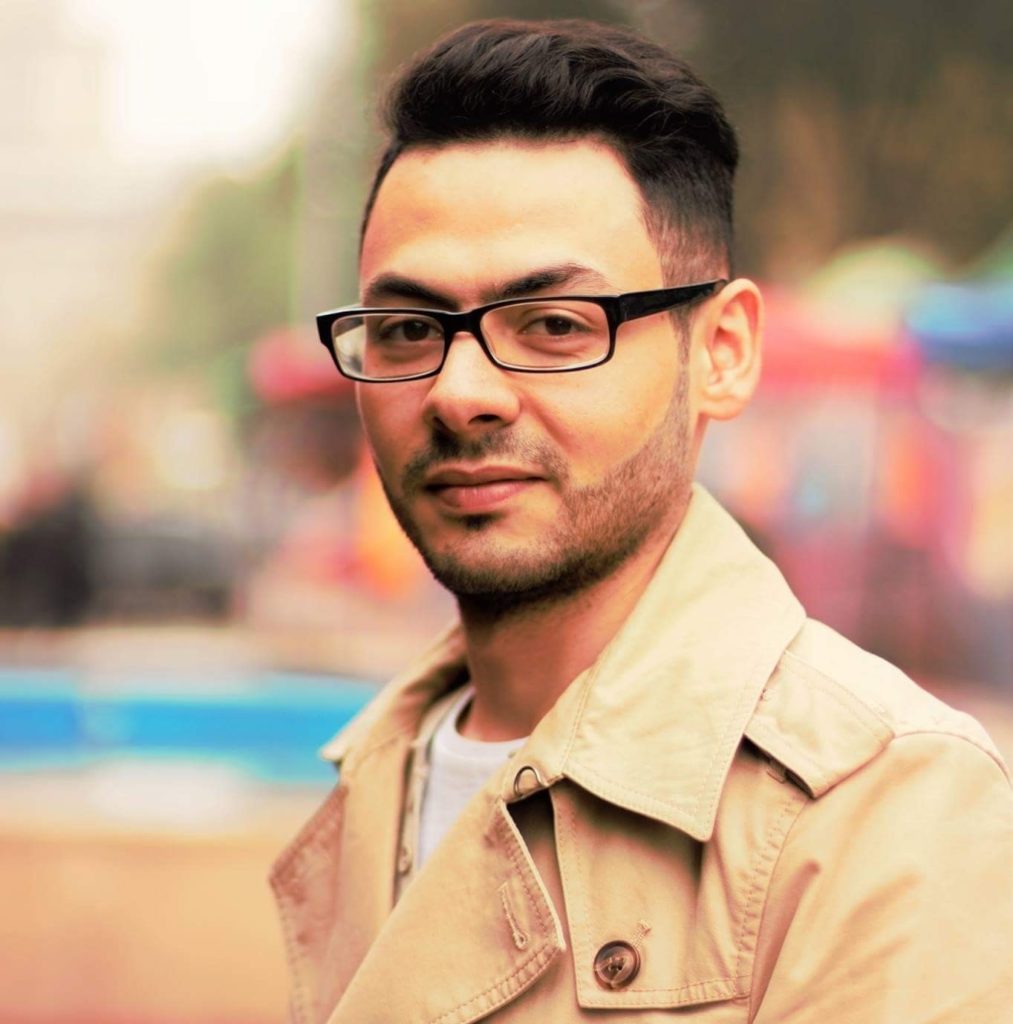 Khachik Petrosyan, Yerevan , Armenia
Khachik Petrosyan, Yerevan , Armenia
Term of the stay: 07.05.2018-05.07.2018
Hosting department: CHU Limoges / University Hospital Center of Limoges/
Department of Neurology, Neuromuscular Diseases Unit
2, Avenue Martin Luther King, 87042 Limoges, France
Supervisor: Prof. Jean -Michel Vallat
Dear members of the EAN Educational Committee.
Thank you very much for this great opportunity in my professional life. I want to point out that my clinical study visit was a great achievement for me. The reason was that I chose the right hospital where I was get much more than my expectations.
Especially want to mention my supervisor Professor Vallat. I am proud to be able to name Professor Valatin as my teacher on the path of my medical professional education.
Extremely caring and attentive, ready to help in any matter, ready to explain and teach any material. Being an extremely busy and demanding physician, he always gave me time and even found for me an accommodation.
In the hospital had not any problems or worries. The staff and doctors of the department were very respectful and ready to help and teach.
I am extremely interested in neuromuscular diseases and had a great opportunity to deepen my knowledge and learned the methods of electrophysiological examination, particularly the EMG.
Four days a week I was studying the EMG, which gave me the opportunity to master the method and now actively use in my country. Every week were performed biopsy of nerves, muscles and skin , with subsequent morphological examination. This was very important, as technically mastering helped me to bring it to Yerevan and performe biopsies here, because it was not used at all in Armenia.
All of this provided an opportunity to learn about the diagnosis and management of neuromuscular diseases, rare and herediatary polyneurapathies: clinical examination, electrophysiological research methods, biopsy, morphological examination, treatment.
I had the opportunity to see many patients with rare problems that are rarely seen in our country, which allowed me to learn and master the most important points of the differential diagnosis.
There was in the hospital the opportunity to study the best medical journals in electronic and print versions.
It was also an excellent opportunity to participate in the work of the ALS Center with a detailed database of 1400 patients. I passed also a lot of time in vascular and intensive care units.
It is also very important that during my stay in France, I had the opportunity to participate in a “6th Translational research meeting on peripheral neuropathies”.
The organizer of meeting was the “National Reference Center of Rare Polyneuropathies“, headed by profesors Vallat and Magy. It was a great opportunity to get acquainted with the latest scientific research in the field, how to introduce them in clinical practice and to have many new useful acquaintances. During that conference, I perfectly enriched my knowledge of tunnelopathies.
In the future I would be happy to return to the University Hospital of Limoges, which remained in my memory as a symbol of evidence-based medicine, competent doctors, good people and a high degree of collegiality. Of course, I would like to work much longer in this department, although I stayed 8 weeks instead of the planned 6 weeks.
All young doctors who will apply for clinical training in the future and want to deepen their knowledge in the field of neuromuscular diseases, I recommend choosing a University Hospital in Limoges.
Once again, I am deeply grateful for the great opportunity.
Eugenia Tsoma, Uzhhorod, Ukraine
Term of the stay: 23 April 2018 – 03 June 2018.
Hosting department: Dept. of Neurology and Center of Clinical Neuroscience Charles University in Prague, 1st Faculty of Medicine and General University Hospital in Prague, Katerinska 30, Praha 2, Czech Republic.
Supervisor: Prof. Evzen Ruzicka, MD, DSc, FCMA, FEAN.
During my 6-week fellowship in Dept.of Neurology and Center of Clinical Neuroscience Charles University in Prague, 1st Faculty of Medicine and General University Hospital in Prague I have had a huge clinical experience for my medical practice.
First of all I want to say Thank You to EAN organisators and especially Prof. Evzen Ruzicka for the possibility of this training, humanic acceptance and the opportunity to have access to all clinical, scientific and diagnostic methods in Center of Clinical Neuroscience General University Hospital in Prague.
Field of my interests is movement disorders. Through my medical practice I have many patients with various types of movement desorders (PD, dystonia, Parkinson + syndrom etc.). That`s why I was very interested in new treatment methods, rehabilitation and improving a quality of life for patients in this area of neurology which Center of Clinical Neuroscience is specializing on. So I was trying to find new practical skills for my future rutine daily medical practice.
I observed everyday clinical activities in department, morning patients` visits in department of extrapiramidal disorders, participated in discussing clinical cases, gained knowledge in different aspects of typical and atypical Parkinsonism.
Every day I have co-ambulatione with doctors in Center of Extrapyramidal desorders where I have exemined patients with PD, essential tremor, tics, dystonias, blepharospasm, hemifacial spasm, functional desorders etc.
During this ambulation I have improve my knowledge in drug titration, new reccomendations for each clinical case with PD and atypical Parkinsonism, dose-correction in case of motor and non-motor fluctuations.
Each Wednesday and Friday I have take a part in botulotoxin injection for dystonia, spasticity and other hyperkinetic disorders (with/without ultrasound and EMG – control).
Also, I have exemined patients with DBS, try to correct frequency and intencity of DBS stimulator in each case, if needed. Find out all indications and exclussion criteria for DBS.
A few times I have attended meeting of multidisciplinary team for duo-doppa implication for PD-patients with uncontroled motor fluctuations.
Also I have take a part in radiological conference where complecated clinical cases were discussed.
Every wednesday afternoon I have an opportunity to visit open lectures in Charles University in Center of Clinical Neuroscience where the interesting topics were presented such as new treatment of multiple sclerosis, depression, narcolepsy and cataplexy etc.
One week through my fellowship I was in department where patients with multiple sclerosis and myastenia gravis are treated, try to do method of evoked potentials and EMG.
A few days I was in department of sleep disturbances where I have learned carrying of typical polysomnography and examination of patients with insomnia, narcolepsy, REM-behavioral disorders.
In the end of my fellowship programme I have had an invitation to present my own clinical case in Czech summer course of extrapyramidal disease in Pisek, Czech Republic.
It was a very big and unforgettable experience for me. During this fellowship I have not just only improve my clinical knowledge but also improve my Chech language skills, so now I can contact my Chech collegues for collaboration and patients without any problems or translation to English.
Also I want to say seperately thanks to Prof. Jan Roth, Hana Brozhova, PhD; Petr Dushek, PhD; Martin Ruml, MD; Kamila Polakova, MD; Olga Ulmanova,PhD; Tereza Seranova, PhD; Without Them my clinical training wasn`t so fullness.
P.S. I highly recommend Dept. of Neurology and Center of Clinical Neuroscience Charles University in Prague for young neurologists who will attend fellowship programme in future years.
And also, as for me, Prague is the most beautiful, highly cultural and historical city in Western Europe.
Donatas Zailskas, Kaunas, Lithuania
Term of the stay: 23/04 – 01/06/2018
Hosting department: Neurodegeneration Imaging Group (NIG), Maurice Wohl Clinical Neuroscience Institute, Basic and Clinical Neuroscience Department, King’s College, 125 Coldharbour Lane, Camberwell, London SE5 9NU, UK
Supervisor: Prof. Marios Politis
First of all, I would like to thank European Academy of Neurology for accepting my application and granting me the opportunity for a 6 week Clinical fellowship. Second, a sincere thank you to prof. Marios Politis, dr. Flavia Niccolini and all of the members of the Neurodegeneration Imaging Group for agreeing to be my hosting department for this duration. During my stay I had the opportunity to spend my time at King’s College Hospital (KCH) and Queen Elizabeth Hospital (QEH). I can honestly say that in both hospitals I was greeted with kindness, friendliness and professionalism. My typical week was as follows:
- Monday (QEH): general neurology clinic, neuroradiology multidisciplinary team meeting, ward referrals;
- Tuesday (QEH): ward referrals, movement disorder outpatient clinic;
- Wednesday (KCH): Neurodegeneration Imaging Group (NIG) multidisciplinary movement disorder team meeting at Maurice Wohl Clinical Neuroscience Institute, movement disorder outpatient clinic;
- Thursday (QEH): general neurology clinic, ward referrals;
- Friday (KCH): movement disorder outpatient clinic with Parkinson’s disease nurse.
Even though my main purpose was to strengthen my knowledge in movement disorders, I tried to use my time to the fullest and take in as much as I can from the surrounding environment, ranging from such subtle things like the doctor-patient relationship or communication among peers to general workings of the National Health Care service in UK. I found the healthcare system to be extremely patient-oriented with an emphasis on patient satisfaction and quality of life. This in turn was mirrored in everyday practices of all the physicians I worked with. Before the fellowship my preliminary objectives and expected gains were:
- Improvement of current history taking to make it more structured, focused and suitable for patients with movement disorders;
- Modification of various current neurological examination components to make it more precise and specialised for movement disorders;
- Apprehension of the spectrum of abnormal neurological examination findings in patients with movement disorders;
- Examination of patients and differential diagnoses of various movement disorders, especially – Parkinson’s disease, atypical parkinsonian syndromes and Huntington’s disease;
- Employment of functional neuroimaging for detection of pathology and differentiation between Parkinson’s disease and atypical parkinsonian disorders such as Multiple System Atrophy, Progressive Supranuclear Palsy, and Corticobasal Degeneration.
I can safely say that I achieved most of them, and my experience exceeded my expectations. Aside from previous points, I had the chance to observe and improve my knowledge in botulinum toxin injections for tremor and dystonia, attend NIG multidisciplinary team meetings, listen to scientific presentations and give a presentation on the updated tremor consensus statement by the Movement Disorders Society myself. Even though I did not see the full spectrum of movement disorders like I would have wanted or did not have the opportunity to frequently review functional neuroimaging, I now realise that even for a longer period than 6 weeks those objectives would have been unrealistic.
At the end, this fellowship benefited my general neurological practice, my interest in movement disorders and broadened my worldview. Throughout my stay never once have I felt out of place, misusing my time, mistreated or unable to approach another specialist for a discussion. The environment was very social, calm and made me feel at home. I found these features to be extremely important when entering a new social and professional circle for 6 weeks. I can safely say that this experience was a turning point in my career and, given the opportunity to again pick a location for a fellowship, I’d make the same decision once more.

